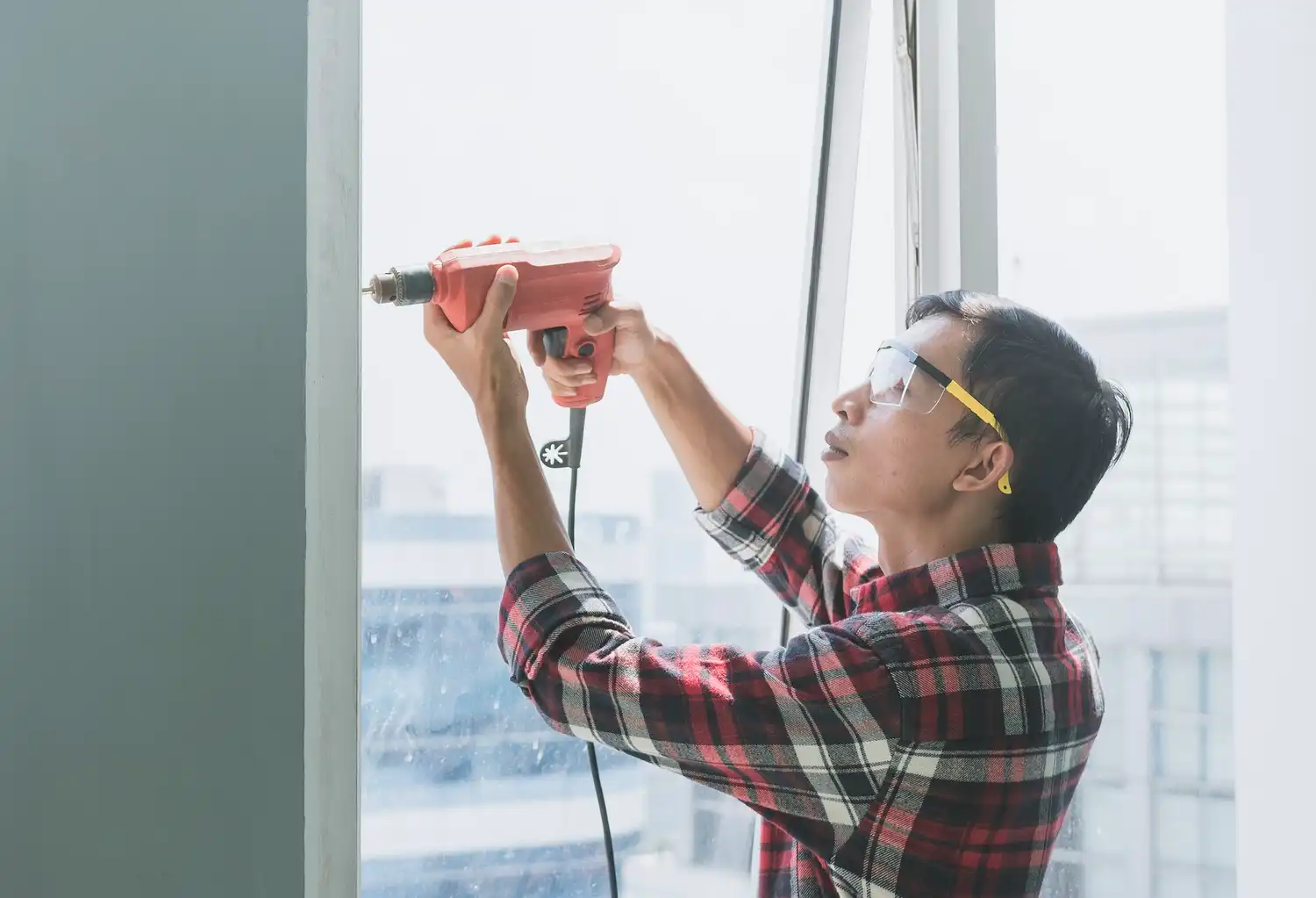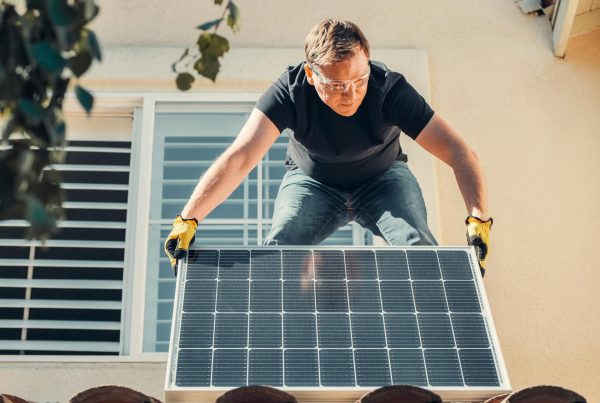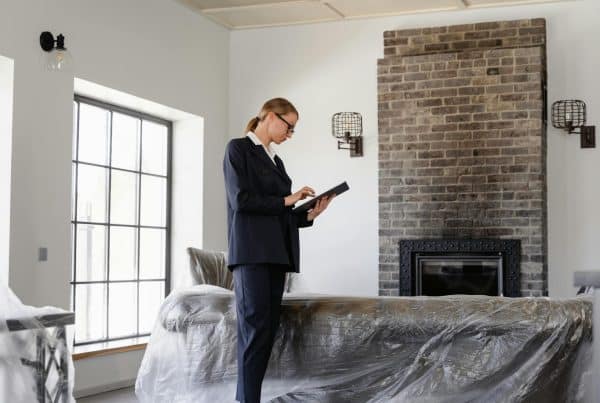Maintaining the value and appeal of a property is important, but what exactly does property maintenance entail?
In this article, we answer this question by delving into the world of property maintenance and providing an overview of the subject.
Want to learn how much it is to renovate a house instead? If so, check out the link.
What Is Property Maintenance?
Property maintenance is how you keep a property in good condition. It is essentially any preventative maintenance action that keeps a property clean and functional.
A lot goes into this since properties require a broad range of services and repairs.
Residential vs. Commercial Property Maintenance
While residential and commercial property maintenance share many similarities, they do have some key differences. See the main ones below.
Who Performs the Maintenance
Resident property maintenance is often performed by homeowners, tenants, or small-scale contractors.
By contrast, maintenance on a commercial property requires attention from specialized maintenance providers with expertise in their respective fields.
In other words, commercial property maintenance is much more involved.
Scale and Complexity
Commercial properties are usually bigger and more complex (though not always) than residential properties.
As a result, commercial maintenance requires more expertise than residential maintenance, as a general rule of thumb.
Commercial Property Audits
Additionally, since commercial properties have more extensive systems, they require regular Facility Condition Assessments (FCAs).
The primary objectives of an FCA are:
● Documenting the current condition of a facility and its systems
● Identifying immediate and long-term maintenance needs
● Estimating repair, replacement, or upgrade costs
● Prioritizing maintenance tasks based on urgency, cost, and importance
● Assisting in the development of capital improvement plans and budgets
Frequency and Intensity
Commercial properties experience a lot of wear and tear from heavy use. This often necessitates frequent, intensive, and costly maintenance.
Legal Requirements and Regulations
Residential properties, on average, don’t have the same amount of red tape as commercial properties. This is because commercial properties are subject to more stringent safety regulations and building codes.
Tenant Expectations and Requirements
Tenants of commercial properties often have unique needs that must be met. For instance, they may require specific temperature settings to preserve sensitive equipment.
Enhanced security measures might also be necessary to protect valuable assets or ensure employee safety.
Additionally, commercial properties must adhere to regulations that mandate wheelchair accessibility, ensuring that all individuals can navigate the space.
Residential Property Flexibility
On the other hand, residential property maintenance tends to offer a greater degree of flexibility.
While there are still regulations that must be followed, the maintenance tasks for a residential property can be tailored more closely to the preferences of the homeowner.
Budget and Cost Considerations
If you own a residential property, you’re going to pay a lot less for maintenance than you would for a commercial building.
The budget and cost considerations are markedly different.
What Does Property Maintenance Generally Include?
Property maintenance encompasses a wide range of services aimed at keeping a property in good condition.
Some common property maintenance tasks are as follows.
Landscaping and Groundskeeping
Mowing lawns, trimming hedges, pruning trees, weeding, and maintaining flower beds, as well as maintaining outdoor features like fountains or ponds.
Cleaning
Regular cleaning of common areas, exterior surfaces, windows, and gutters, as well as deep cleaning tasks such as power washing or carpet cleaning.
Plumbing
Inspecting, repairing, or replacing pipes, faucets, and fixtures. And addressing drainage issues, leaks, or blockages.
Electrical Maintenance
Ensuring the electrical system is functioning safely and efficiently, which may involve repairing wiring, outlets, switches, or lighting fixtures.
HVAC Maintenance
Regular servicing of heating, ventilation, and air conditioning systems.
Pest Control
Implementing preventive measures and addressing pest infestations.
Painting and Touch-ups
Periodic painting or touch-ups to maintain the property’s appearance and protect surfaces from wear, moisture, or UV damage.
Roofing and Siding
Inspecting and repairing roofing and siding materials to prevent leaks, water damage, or other structural issues.
Safety and Security
Regular inspection and maintenance of fire alarms, smoke detectors, security systems, and emergency lighting.
General Repairs and Maintenance
Addressing minor repairs or maintenance tasks. These include fixing broken doors, windows, or locks, patching holes in walls, and replacing worn-out fixtures.
Property Maintenance Categories
Here are some common property maintenance categories.
Preventative Maintenance
This includes regularly scheduled tasks, such as servicing HVAC systems, inspecting roofs, or testing fire alarms.
Corrective Maintenance
Corrective maintenance is performed when an issue arises, such as a leaky faucet, a broken window, or a faulty electrical outlet.
Routine Maintenance
Regular, ongoing tasks that maintain a property’s cleanliness, appearance, and functionality fall under the umbrella of routine maintenance.
Seasonal Maintenance
These are tasks that are specific to certain times of the year, such as winterizing irrigation systems or servicing air conditioning units in the spring.
Structural Maintenance
Structural maintenance includes tasks that are focused on maintaining the integrity of the building.
Cosmetic Maintenance
Cosmetic maintenance tasks are focused on improving a property through painting, updating fixtures, and refinishing floors.
Regulatory Compliance Maintenance
These are maintenance activities that are required to meet local, state, or federal regulations.
Deferred Maintenance
These are maintenance tasks that are postponed due to budget constraints, scheduling conflicts, or other reasons.
Emergency Maintenance
Unplanned emergency maintenance is used in response to unexpected events, such as restoring power after an outage.
Equipment Maintenance
Regular inspection, servicing, and repair of equipment and machinery within a property fall under the category of equipment maintenance.
How To Keep Your Commercial Property In Good Shape
Maintaining your property in top condition is crucial for preserving its value, appearance, and functionality. Here are three things you can do to help with this.
Create A Preventative Maintenance Program
A preventative maintenance program focuses on routine inspections and timely repairs to keep small, inexpensive issues from becoming big, costly ones.
Implementing a preventative maintenance program is the fastest and most efficient way to spot and fix problems early on.
Budget For Your Maintenance Spending
Budgeting is a critical aspect of every successful preventative maintenance program.
To create an effective budget, one should include provisions for both regular upkeep and contingencies for unexpected issues.
Buy and Use Durable, High-Quality Materials
Using durable, high-quality materials is an easy way to minimize long-term maintenance costs. While the initial investment might be high, good materials save time and effort by minimizing the need for repairs.
Why Hire A Property Maintenance Professional?
To answer why you should hire a property maintenance professional, let’s take a look at some advantages and disadvantages of doing so.
Benefits of Property Maintenance
The benefits of property maintenance are substantial and include the following.
• Preventative Care – Regular maintenance helps identify and address minor issues before they escalate.
• Tenant Satisfaction – A well-maintained property promotes a comfortable and safe living environment, resulting in lower vacancy rates.
• Curb Appeal – Proper upkeep enhances the property’s appearance, making it more attractive to potential renters or buyers.
• Efficiency – Regular maintenance of systems, such as HVAC and plumbing, can improve energy efficiency.
• Professional Quality vs. DIY – Hiring professionals for property maintenance ensures expert workmanship and lessens the chance of costly mistakes or improper repairs.
• Save Time – Outsourcing maintenance tasks to professionals frees up valuable time for property owners and managers.
• Assurance – Reliable property maintenance services offer peace of mind. They ensure that issues with your property will be addressed promptly and effectively.
Downsides of Property Maintenance
While property maintenance offers numerous benefits, it is important to consider the potential downsides as well.
Here are some common drawbacks.
• Costly – Regular maintenance can be expensive, especially if unexpected issues arise.
• Lack of Experience – Inexperienced property managers or DIY maintenance attempts might lead to subpar workmanship.
• Lack of Flexibility – Hiring a property maintenance service could mean less flexibility, as the company may have a predetermined repair schedule that might not align with your needs.
• Inconsistent Quality – The quality of maintenance work might vary if different service providers or technicians are used.
• Potential Disruptions – Maintenance tasks, especially larger-scale projects, might cause temporary disruptions to tenants.
How To Find The Right Property Maintenance Company
Here are some things you can do to find the right property maintenance company.
Define Your Requirements
Knowing what specific maintenance services you require (e.g., electrical work) will help you narrow down your search to relevant companies.
Ask For Recommendations
Sometimes talking to a friend, family member, or colleague is all it takes to find the right property maintenance service. You can also find good companies through online reviews and local forums.
Research and Compare
Comparing the services, pricing, and testimonials of more than one company allows you to compare and contrast and find the best deals.
Check For Licenses and Insurance
It’s a good idea to check that your property maintenance company has the necessary licenses or certifications for the services they offer.
Additionally, it’s worth asking them if their insurance provides protection against potential damages or liabilities during maintenance work.
Gathering Quotes
Collecting quotes from multiple companies allows for a comparison of pricing and service offerings.
Examining Contract Terms
A thorough review of the maintenance agreement’s terms and conditions is crucial. Details to pay extra attention to include the scope of services, payment terms, and termination clauses.
Residential Home Maintenance Checklist
Keeping your home in good condition is part of preserving its value. Here is a short home maintenance checklist that covers essential inspections for your property.
1. Inspect Your Roof
Making routine roof inspections isn’t a bad idea. It’s fairly easy to spot major problems like missing or broken shingles.
Other types of damage like small leaks, however, may require a professional inspection to identify.
2. Perform HVAC Maintenance
It’s also a good idea to schedule annual inspections and maintenance for your heating and cooling systems.
In the meantime, you can check and replace your heating, ventilation, and air conditioning (HVAC) filters every few months to maintain air quality and system efficiency.
3. Check Plumbing
To check for plumbing issues in a house, look for signs of leaks, such as water stains, damp spots, mold, or peeling paint.
You can also inspect visible pipes, faucets, and fixtures and test your water pressure, drainage, and toilets.
4. Perform an Electrical System Review
Checking for any frayed or damaged wires ensures that all electrical outlets and switches are functioning properly.
We also suggest routinely testing and replacing batteries in your smoke and carbon monoxide detectors.
5. Inspect Your Home Exterior
Maintaining your home’s exterior is essential for both its aesthetic appeal and structural integrity.
To enhance your home’s exterior, consider routine cleaning, as well as conducting thorough inspections for signs of paint deterioration.
6. Maintain Your Pool
In Las Vegas, homes with pools are a big deal, and a lot of people have them. But they do require a lot of care and attention, as you may well know!
Regularly skimming, brushing, and balancing chemical levels in your pool to keep it safe and clean is standard practice.
7. Clean Your Ceiling Fans and Dryer Vent
Keeping your home tidy means attending to various miscellaneous items, such as your ceiling fans and dryer vent.
Dust buildup on fan blades can contribute to allergies.
Meanwhile, lint buildup in the dryer vent can lead to longer drying times, increased energy consumption, and even fire hazards.







